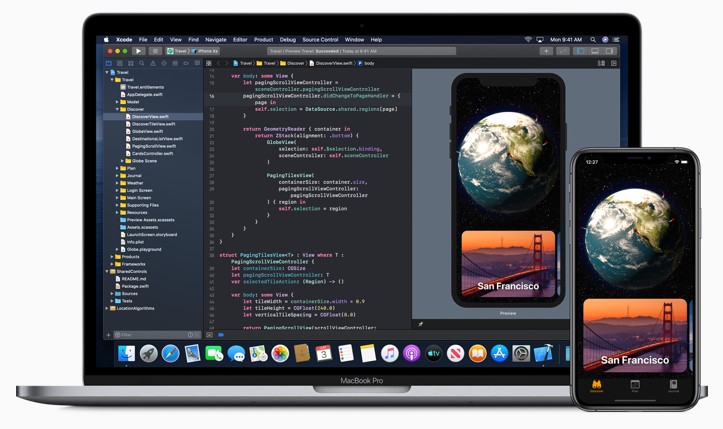Jon Prosser: Xcode on iPad could pave the way for mobile 'Pro' apps

iMore offers spot-on advice and guidance from our team of experts, with decades of Apple device experience to lean on. Learn more with iMore!
You are now subscribed
Your newsletter sign-up was successful
What you need to know
- Jon Prosser says that Xcode is present on iOS/iPadOS 14.
- It would mean developers could make apps on mobile devices for the first time ever.
- It could also pave the way for 'Pro' apps like Final Cut to come to iPad.
Jon Prosser says that Xcode is present on iOS/iPadOS 14, possibly paving the way for Pro applications on iPad.
In a tweet yesterday he said:
I'm not gonna say that Final Cut is coming to iPad...But XCode is present on iOS / iPad OS 14.The implications there are HUGE.Opens the door for "Pro" applications to come to iPad.I mentioned this last week on a live stream, but figured it was worth the tweet
I’m not gonna say that Final Cut is coming to iPad...
But XCode is present on iOS / iPad OS 14. 👀
The implications there are HUGE.
Opens the door for “Pro” applications to come to iPad.
I mentioned this last week on a live stream, but figured it was worth the tweet 🤷🏼♂️I’m not gonna say that Final Cut is coming to iPad...
But XCode is present on iOS / iPad OS 14. 👀
The implications there are HUGE.
Opens the door for “Pro” applications to come to iPad.
I mentioned this last week on a live stream, but figured it was worth the tweet 🤷🏼♂️— Jon Prosser (@jon_prosser) April 20, 2020April 20, 2020
The implications of this are two-fold. Firstly, Xcode on iOS/iPadOS would allow developers to code apps on mobile devices for the first time ever, where previously they were only able to do so through Mac. Secondly, as Prosser, mentions, it could pave the way for some of Apple's 'Pro' applications, like Final Cut and Mainstage to come to iPadOS.
As our man Rene Ritchie notes, this would present a couple of issues. The first is RAM. Apple's 'Pro' apps are very resource-intensive and require a minimum of 8GB of RAM found in Apple's Mac lineup to run properly at present. For intensive sessions of Logic Pro, Mainstage or Final Cut Pro, even more than 8GB of RAM is usually needed. The second is functionality, just because you can make a desktop app available on mobile, doesn't mean you should. Rene notes the example of Adobe Photoshop, which is currently figuring out "what makes sense in terms of functionality and interactivity on the iPad." Whilst Apple could feasibly overcome the hardware issue so that Final Cut could run on iPad, would it be the best touch screen experience? Certainly, Apple Pencil and iPadOS trackpad support would go a long way to alleviating some of this.
It seems the more immediate impact of this rumor would be for developers who would no longer be bound to Mac when it comes to developing, which could well be a welcome improvement.
iMore offers spot-on advice and guidance from our team of experts, with decades of Apple device experience to lean on. Learn more with iMore!

Stephen Warwick has written about Apple for five years at iMore and previously elsewhere. He covers all of iMore's latest breaking news regarding all of Apple's products and services, both hardware and software. Stephen has interviewed industry experts in a range of fields including finance, litigation, security, and more. He also specializes in curating and reviewing audio hardware and has experience beyond journalism in sound engineering, production, and design.
Before becoming a writer Stephen studied Ancient History at University and also worked at Apple for more than two years. Stephen is also a host on the iMore show, a weekly podcast recorded live that discusses the latest in breaking Apple news, as well as featuring fun trivia about all things Apple. Follow him on Twitter @stephenwarwick9
